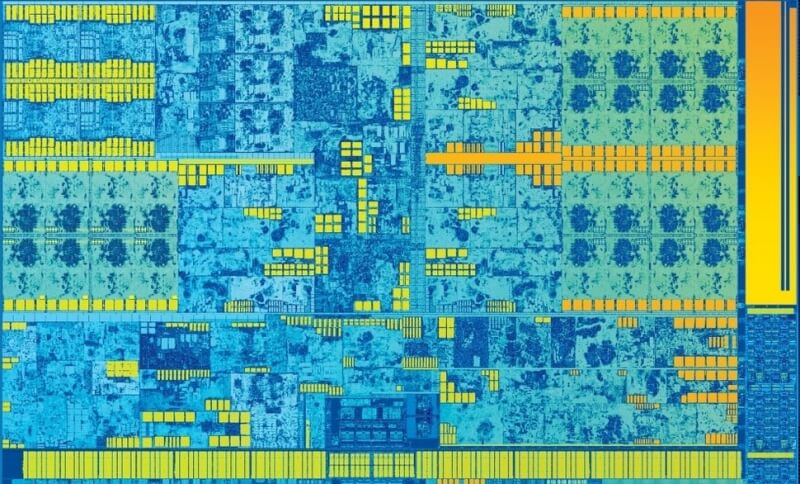
With mounting evidence over the past year, Intel has officially confirmed in their latest K-10 filing that their famous 'tick-tock' process node development cycle has ended. Instead of getting two processor families on each die shrink, the company is now looking to release three or more over the course of several years.
As spotted by PC Perspective and The Motley Fool, Intel's filing states that they "expect to lengthen the amount of time we will utilize our 14 [nanometer] and our next-generation 10 [nanometer] process technologies." The yearly release of new products will continue, but there will be a closer focus on architecture optimization as the development of process technology slows.
What immediate impact does the end of 'tick-tock' have on Intel's upcoming products? Well, it basically confirms that their next product family, codenamed 'Kaby Lake', will be manufactured using 14nm technology instead of 10nm. This pushes back the timeframe for Intel's 10nm processors to 2017, and 7nm to 2019 or later.
Over the next few years, Intel may be surpassed in processor manufacturing technology by rivals like TSMC, who expect to have 7nm processors ready by around 2018. We're still talking about tech that won't be ready for several years, but it definitely seems like Intel will no longer have a clear advantage when it comes to smaller process nodes.
Despite increased competition from other companies, Intel still believes it has a competitive advantage when it comes to processor technology. As Intel both develops new processors and owns the facilities to fabricate them, this gives the company the ability to "optimize performance, shorten time-to-market, and scale new products more rapidly."
Whether this perceived advantage will actually lead to faster deployment of new process nodes remains to be seen. But for the time being, tick-tock appears to have died, and this year we're in for another 14nm chip.
https://www.techspot.com/news/64197-intel-officially-kills-off-tick-tock-era-extended.html